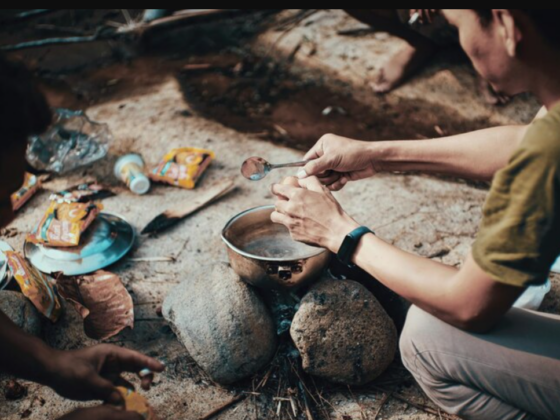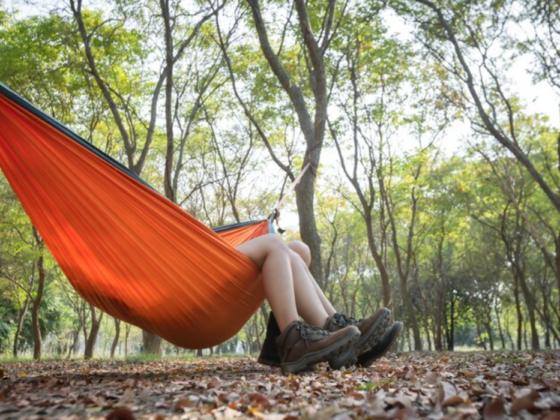Mountain camping has long held a magnetic pull for those looking to escape the hum of modern life and reconnect with the raw beauty of nature. Unlike its coastal counterpart, mountain camping is more than just a weekend getaway—it’s a test of endurance, preparation, and appreciation for the subtleties of high-altitude terrain. While the rewards are unmatched, from sweeping panoramic views to the crisp, clean air, the challenges of camping at elevation require respect, knowledge, and thoughtful planning.
In this article, we’ll explore what makes mountain camping so uniquely rewarding, the obstacles it presents, and how it compares to other outdoor experiences like beach camping in Batangas. Most importantly, we’ll provide practical tips to help you prepare for your next high-altitude adventure.
The Allure of Mountain Camping
Mountains evoke a sense of mystery and majesty. Whether you’re standing beneath snow-capped peaks or nestled in a foggy pine forest, there is something grounding and transformative about being surrounded by towering ranges. Unlike the lowland or coastal campsites where the mood leans towards relaxation, mountain camping engages your body and mind. You’re constantly adapting to changing weather, thinner air, and shifting terrains.
Here are just a few reasons why campers are drawn to higher altitudes:
-
Breathtaking Views: Sunrises and sunsets take on a new level of brilliance above the clouds. The elevation often offers vistas you simply can’t get at sea level.
-
Peace and Solitude: Remote locations mean fewer crowds. It’s an ideal setting for those seeking introspection or a break from social noise.
-
Flora and Fauna: Alpine ecosystems host unique plant and animal life that you won’t encounter elsewhere. Think wildflowers blooming in meadows and elusive mountain goats navigating steep cliffs.
Challenges at High Altitude
With beauty comes complexity. One of the primary hurdles of mountain camping is dealing with high elevation. Unlike other terrains, the altitude adds an extra layer of risk that shouldn’t be underestimated.
Altitude Sickness
As you ascend to elevations above 2,500 meters (about 8,200 feet), the air gets thinner, and your body receives less oxygen. This can lead to altitude sickness, which ranges in severity from mild headaches and nausea to more serious conditions like High Altitude Pulmonary Edema (HAPE) or High Altitude Cerebral Edema (HACE).
Symptoms include:
-
Dizziness
-
Fatigue
-
Loss of appetite
-
Shortness of breath
Acclimatization is key. Spend time at mid-altitude before pushing higher, and make sure to hydrate often and eat foods rich in carbohydrates.
Unpredictable Weather
Mountain weather shifts rapidly. What begins as a clear morning can end in a downpour or even a snowstorm, depending on the season. Unlike beach or forest camping where weather tends to follow more predictable regional patterns, mountains create their own microclimates.
Preparation tips:
-
Bring layers, including a moisture-wicking base, insulating mid-layer, and waterproof outer shell.
-
Use a weather app that specializes in mountain forecasts.
-
Set up camp away from cliff edges and avoid valley floors where cold air settles at night.
Physical Strain
Even short hikes can feel intense at high altitudes. You’ll expend more energy than usual, especially when carrying a loaded backpack. Combined with colder temperatures, your body will burn calories quickly.
Pace yourself. Give your body time to adjust. Take breaks not just for rest but for assessing how you’re feeling. Know your limits and respect them.
Essential Gear for Mountain Camping
You don’t need to invest in the most expensive gear, but certain equipment is non-negotiable when heading into high-altitude environments.
-
Four-season tent: These tents are built to handle snow, wind, and low temperatures. Look for one with a robust frame and snow flaps.
-
Sleeping system: Use an insulated sleeping pad to create a thermal barrier between you and the cold ground. Choose a sleeping bag rated for temperatures lower than you expect.
-
Cookware and fuel: Butane-propane mix canisters perform poorly in cold. Opt for liquid fuel stoves if you’re camping above the tree line.
-
Water filtration system: Snowmelt and streams may appear clean but still carry microorganisms. Bring a portable filter or UV purifier.
Nutrition and Hydration at Elevation
Eating well isn’t just about comfort—it’s about survival. High altitudes increase your metabolic rate, which means you need more calories and hydration.
-
Eat often: Small, frequent meals are easier to digest and help maintain energy levels.
-
High-calorie foods: Think nuts, cheese, peanut butter, and dehydrated meals.
-
Drink more water than usual: Aim for 3-4 liters per day. Dehydration is a major risk factor for altitude sickness.
Warm beverages like tea or broth can help you stay hydrated while also providing warmth and comfort.
Mental Rewards of Mountain Camping
While the physical rewards are visible—unspoiled landscapes, pristine skies—the emotional and mental benefits are equally profound. Camping in the mountains can reset your perspective. With no cell signal, no cars, and no artificial lights, you’re left with the bare essentials of life. The silence is deep, sometimes unsettling at first, but eventually comforting.
You may find yourself more mindful, more grateful. Whether it’s through journaling, stargazing, or simply sitting in stillness, the mountains offer a space for personal reflection that’s hard to replicate in daily life.
Comparing Mountain and Beach Camping
For many Filipinos, beach camping in Batangas offers a more accessible outdoor experience. The logistics are simpler, the climate is gentler, and the ocean brings a different kind of peace. The sound of waves, warm breeze, and sandy shores are ideal for families and beginner campers.
However, mountain camping appeals to those craving a deeper immersion in nature’s rawness. Where beach camping is passive and leisurely, mountain camping demands interaction and intention. You have to work for the view, and that effort deepens the reward.
Final Thoughts
Camping in the mountains is not for everyone, but for those who choose to answer the call of the peaks, it can be life-changing. The altitude challenges your body, but it also sharpens your focus and resilience. The terrain tests your skills but also strengthens your connection with nature. Every sunrise witnessed from a mountaintop and every breath of cool, pine-scented air becomes a reward earned through preparation, perseverance, and respect for the wild.
If you’ve ever returned from a beach trip feeling relaxed, you’ll likely return from a mountain trip feeling transformed. And sometimes, transformation is what we need more than anything else.



